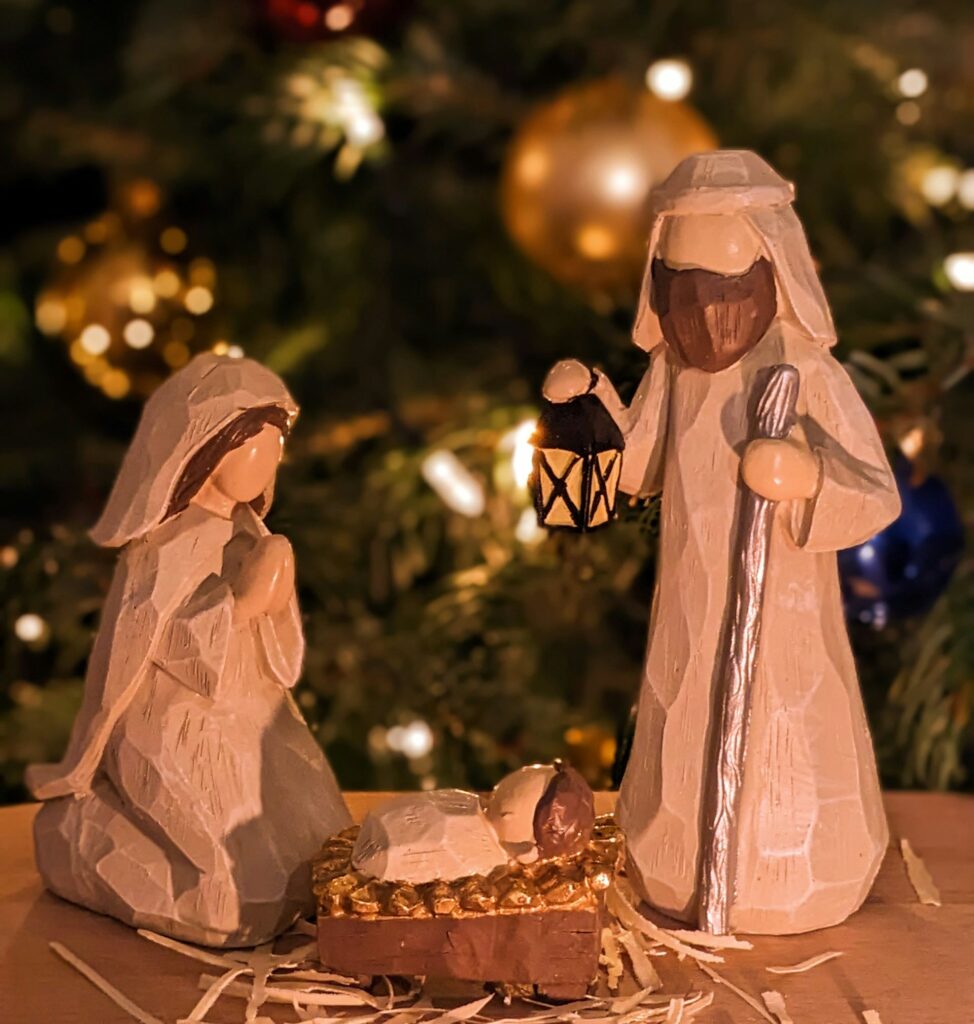Jesus’ mission was to redeem creation and lead the fallen human race out of slavery to sin and back to God the Father. He did that in a way nobody could have imagined. Jesus became human, joined the human race, and came to earth as a baby. This is the wonder of the incarnation.
How could God, who is all-powerful, who created the universe and everything in it become flesh? There is no way for us to really fathom that.

“The virgin will conceive and give birth to a son, and they will call him Immanuel” (which means “God with us”).
Matthew 1:23 NIV (quoting Isaiah 7:14)
The Word became flesh and made his dwelling among us. We have seen his glory, the glory of the one and only Son, who came from the Father, full of grace and truth.
John 1:14 NIV
Even more perplexing is that Jesus became a man while remaining fully divine. In Jesus and the Undoing of Adam, C. Baxter Kruger expands on this idea:
“On the other side, there is the staggering truth that the Son of God became flesh, as John tells us (John 1:14). It is one thing to say that the Son of God became a human being; it is quite another to say that he became flesh. “Flesh” locates the incarnation not only within human existence, but within the pale of fallen Adamic existence. It could not have been otherwise. Jesus’ mission was to bring the fallen human race to the right hand of God the Father almighty. His mission was to reconcile us to God, to heal the breach, to undo the Fall and bring us to glory.
The paradox at the heart of Christianity is that the Son of God entered into fallen Adamic existence without ceasing to be the Son of God. He became Adam without ceasing to be the faithful Son of the Father. The life of the Trinity intersected the brokenness of fallen human existence. How is this possible?“
C. Baxter Kruger, Jesus and the Undoing of Adam, (Kindle location 454 of 1139)
Saint Athanasius recognized the far-reaching significance of Jesus’ incarnation:
“At one and the same time — this is the wonder — as Man He was living a human life, and as Word He was sustaining the life of the universe, and as Son He was in constant union with the Father. Not even his birth from a virgin, therefore, changed him in any way, nor was he defiled by being in the body. Rather, he sanctified the body by being in it.”
Athanasius, Saint. On The Incarnation (p. 15).
Our Creator was humble enough to take on our frail humanity in order to come to earth to be with us. Gods of human invention don’t want to be part of their creation – they want to rule it.